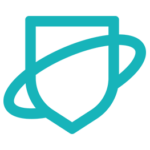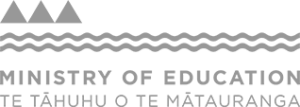CEO Update
Kia ora,
As we conclude our third quarter of the financial year and the first for 2024, Netsafe has started off with a surge in in scam reports and harmful digital communications matters. From phishing attacks to harassment online, our helpline and education teams have been responsive and stretched to deal with requests for help.
This period saw significant milestones, including our 8th year of convening Safer Internet Day, this year coinciding with Waitangi Day. We embarked on our inaugural visit to Waitangi, amplifying Māori voices and addressing their online safety concerns firsthand. You can listen to our enlightening radio interview at waateanews.com.
Moreover, we proudly launched our new educators’ online platform at education.netsafe.org.nz, equipping educators with invaluable resources and support to foster safer online environments for students and their families. Already proving popular is our early access to Hector’s World animated series and suite of resources ready to launch on 1 May across the primary school sector.
Our partnership with Microsoft resulted in the release of AI policy templates for schools which will soon be followed by a toolkit for educators in the classroom, fostering confidence in teaching critical thinking with new technologies while providing practical guidance on safe technology use.
Venturing into scam victim recovery services, we’ve joined forces with CYBERA to assist individuals facing financial losses. Our commitment to this cause remains unwavering, with plans to announce further initiatives next quarter to help scam victims take on the scammers.
We await the Justice Select Committee’s decision on the proposed Ram Raid Offending and Related Measures Amendment bill. Netsafe has called on the government to commit more resources to research and education to understand the role of social media in youth offending. With a youth-centric focus, expect over the coming months to see Netsafe actively engaging with young people in intervention design, campaigns and programmes to ensure a better understanding of youth challenges both online and offline.
As we look ahead, Netsafe remains dedicated to innovation, promising to deliver new services, products, and campaigns to all New Zealanders throughout the year.
Ngā mihi,
Brent Carey
CEO, Netsafe
Report Contents
Previous quarterly reports
Quarterly Results
Between January – March 2024, Netsafe received 6,497 reports overall.
Top taxonomy descriptions included:
Phishing • Harassment • Non-existent product • Sextortion
TOTAL REPORTS
PERSONAL HARM COMPLAINTS
SCAM & FRAUD REPORTS
Reports by age group
1%
00-12
15%
13-17
8%
18-21
41%
22-40
29%
41-64
6%
65+
Reports by region
Reports by gender
62%
FEMALE
2%
GENDER DIVERSE
37%
MALE
Personal Harm Reporting
Reported breaches under the Harmful Digital Communications Act*
Between January and March 2024, Netsafe received 1,396 personal harm reports. The top personal harm categories under the Harmful Digital Communication Act for the quarter were:
* Cases often involve breaches of more than one communication principle
Scam and Fraud Snapshot
Between January – March 2024, Netsafe received 851 reports with losses totalling:
LOSSES ($)
Education, Partnership & Impact
Online harm prevention and public awareness campaign activity:
As New Zealand hosts of the Safer Internet Day international annual campaign (6th February) Netsafe began the calendar year by releasing new policy documents to support teachers and students in the use of AI, as well as launching a new education website hosting new materials covering Year 7 – 13 (adding to our original pilot of materials for Years 9-11 last year).
The Capability Tool was later added to the education hub – based on the Netsafe Educator Framework, this self-assessment tool will support educators in understanding how their school or kura is tracking against key indicators of online safety and digital citizenship capability.
During orientation week at Otago University, our Dunedin-based team attended ‘tent city’ to welcome a new cohort of students. Some 1,567 survey responses to our survey provided insights into which online harms impact this community most. 69% noted scams are the biggest concern for them online, followed by 58% the impact of social media on their mental health, then photos being shared online without their permission (54%), with the rise of AI/Deep Fakes an increasing concern (48%).
In February, Netsafe ran public awareness campaigns via social media advertising on the topics of sextortion for parents and young people across Meta channels, and a campaign promoting a new educational resource for Valentine’s Day to prevent “Romance Scams”. Created in partnership with Thames Valley Police Central Fraud Unit and Criminologist and Linguist Elisabeth Carter.
In February, supported by Chorus, Netsafe also launched a collection of freely accessible ‘Get Set Up for Safety’ educational resources to help older adults stay safe online, while enjoying the benefits of being connected. The resources include six printable booklets, two pamphlets and a series of instructional videos.
In March we released an interactive learning module version of the 2degrees backed by Netsafe “First Phones” education campaign, accessible to children either in school or at home.It builds on the original unboxing experience taking kids and parents through a 10-step programme of good and bad things about smartphones.
The end of this quarter also saw us add Easy Read versions to the Digi Citizens Framework on our website. A pilot of work by Hōhepa Canterbury (who deliver programmes by and for families living with intellectual disabilities) which includes a literature review and resources designed to help young people and those who work with them.
Submissions and Advocacy
Netsafe responds to public consultations or may otherwise advocate on issues relevant to our work. Submissions can be found here.
About Netsafe
Netsafe is an independent non-profit organisation with an unrelenting focus on online safety. We keep people safe online by providing free support, advice and education. Visit netsafe.org.nz for useful resources or call 0508 638 723 seven days a week for help with an online incident.
Find out more at www.netsafe.org.nz
Report Data
The data in this report represents the data available at the end of the quarter. Information related to the reports made to Netsafe reflect high-level trends and does not include easily identifiable information about specific reports/incidents.
If you have any queries about the information in this report, please email [email protected]





